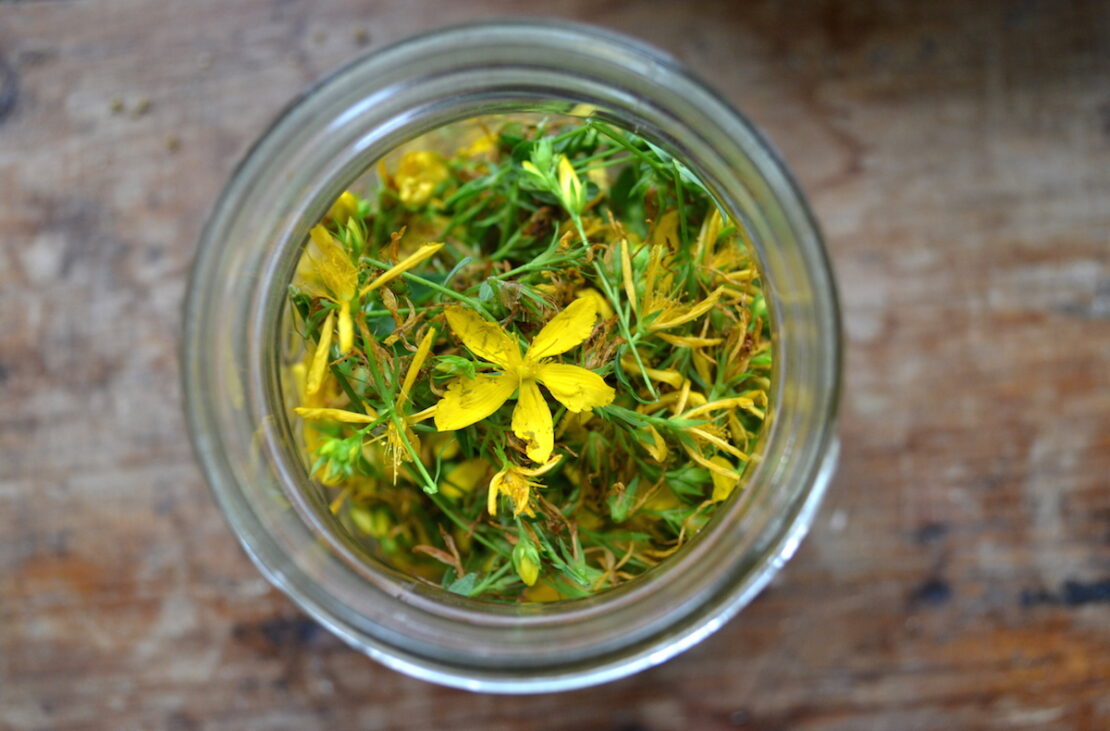
Boost Your Confidence With Herbs for Self-Doubt
We all have moments of self-doubt when we worry whether our abilities and our worth are “enough” (they are!). We may question our decisions and struggle to find a sense of assuredness. When occasional self-doubt becomes a prolonged experience, low self-esteem and a lack of confidence can become a block to our personal fulfillment. Chronic self-doubt can result from many factors, including trauma, negative experiences, and societal messaging. Though it can be easier said than done, you can boost your confidence by letting self-love and confidence back in.
Balancing the stress response, calming anxiety, and uplifting one’s mood go a long way toward gaining confidence, and it may be helpful to notice if there are triggers associated with anxiety and increased feelings of self-doubt. Keeping a journal, talking with a trusted friend, and potentially addressing these patterns through psychotherapy can all be helpful supports. Also, when our bodies are balanced, our mental health will tend to follow suit. In addition to time in nature, getting exercise and ample sleep, choosing nourishing food, and spending time with supportive people, connecting with herbal allies can help us embrace our life with more assurance and vigor. These are some of our favorite herbs to boost your confidence.
Boost Your Confidence With Herbs for Tending to Self-Doubt
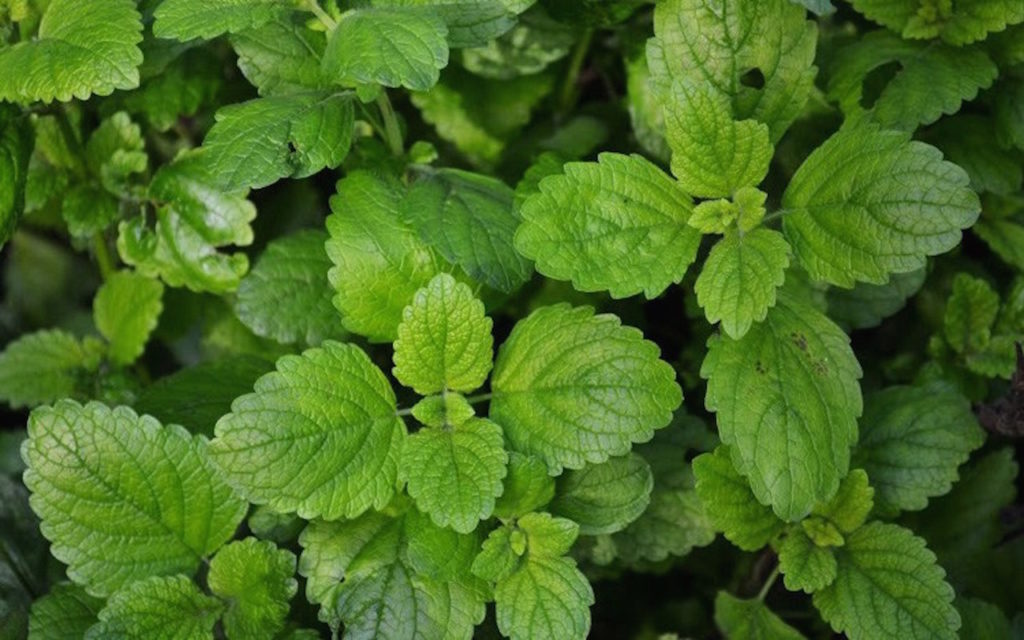
Lemon balm (Melissa officinalis) aerial parts
If you find yourself bogged down by negative self-talk, cheerful lemon balm may become your new herbal bestie. Letting lemon balm in is the equivalent of letting the light into a dark room—airing out those musty corners of self-doubt to be replaced by a sense of uplift that may open the way for a fresh boost of self-confidence. Lemon balm brightens the mood, lightens the mental load, and sets the tone for joy to repopulate the heart. Just inhaling the fresh lemony scent of this mint-family herb sets the tone for a brighter day. Lemon balm grows abundantly in the right conditions—dappled sunlight and moist, but well-drained soil—making it a pleasant and easy addition to your herb garden. Boost your confidence by turning to lemon balm for assistance with anxiety, insomnia, restlessness, hyperactivity, and even indigestion (Groves, 2016). Possessing antiviral properties, lemon balm also helps banish more than self-doubt.
Fresh lemon balm leaves make a pleasant tea, which is generally acceptable to even sensitive palates. Mix with mint leaves and/or rose petals for a simple cooling summer tea. Lemon balm leaves also keep their potency as a tincture, which is in fact ideal for preserving the benefits of the fresh plant. Lemon balm is often upheld as an herb safe for children (with the proper dosing adjustments), making this a useful herb for the whole family. Improved mood, calm tummies, and peaceful sleep, here we come!
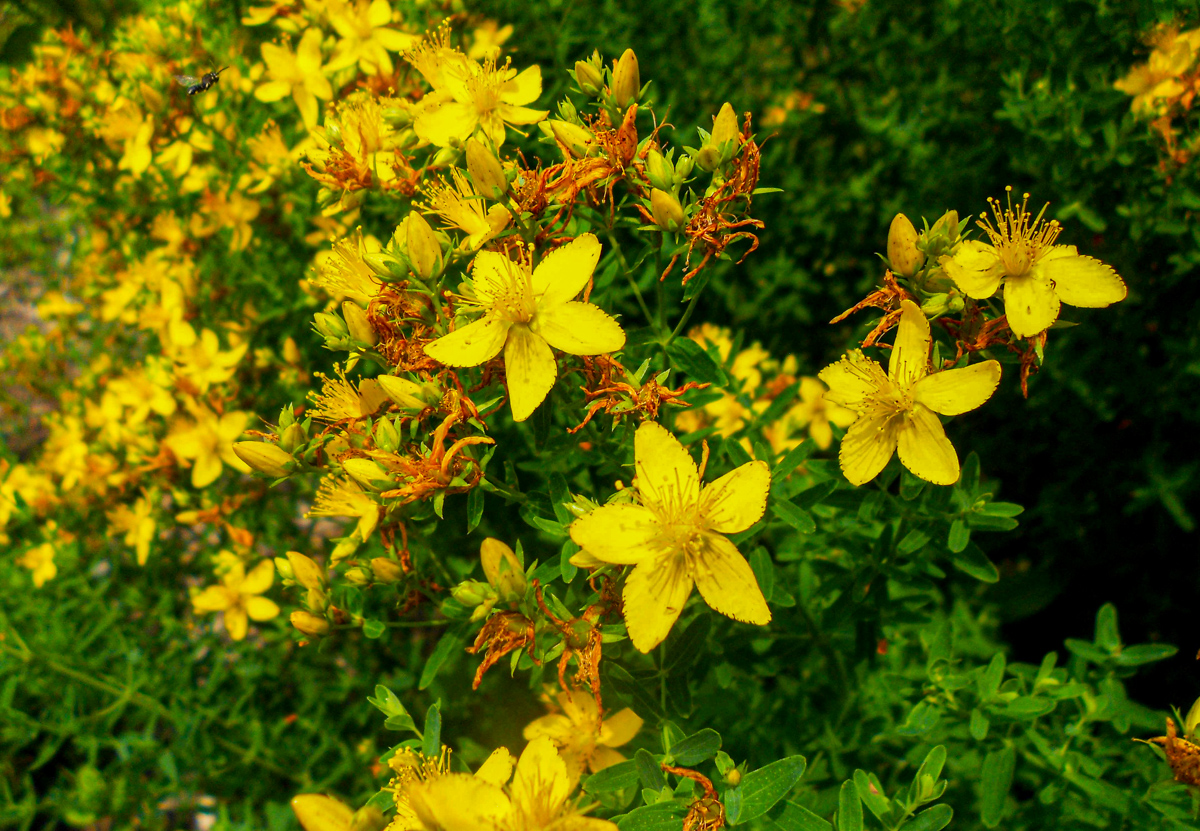
St. John’s wort (Hypericum perforatum) aerial parts
When self-doubt creeps in with its distrust and disappointment about not being “enough,” sunny St. John’s wort can help you feel safe and held. St. John’s wort airs out the dark corners of the mind where self-doubt sets up camp, and is said to banish dark thoughts and nightmares (Groves, 2016). Imparting a sunny energy, St. John’s wort is well-known for its ability to ease the blues, and has been well-studied for its capacity to lessen mild to moderate depression. Herbalists turn to St. John’s wort to address low mood, stress, nervous tension, and seasonal effective disorder (SAD) (Dass, 2013; Groves, 2016). In cases of persistent and/or more severe depression it is always important to consult with a mental health professional.
A multifaceted herb, St. John’s wort is also well-known for its usage in calming nerve pain, and may be applied to affected areas as a topical oil or salve. Pain and mood certainly have a relationship, as intense physical pain can greatly deplete one’s energy and make it challenging if not impossible to have a sunny outlook on life, or to even think clearly. So, if you are dealing with nerve pain (such as sciatica or shingles), low mood, winter blues, and/or nervous tension, St. John’s wort can serve as an excellent herbal companion. Just be sure to check for any herb-drug interactions with St. John’s wort as it is contraindicated with a number of pharmaceuticals, such as hormonal contraceptives, beta blockers, and SSRIs. Also, larger doses of St. John’s wort can increase photosensitivity, so if you are fair-skinned or already sun-sensitive, be sure to take extra precautions with sun exposure.
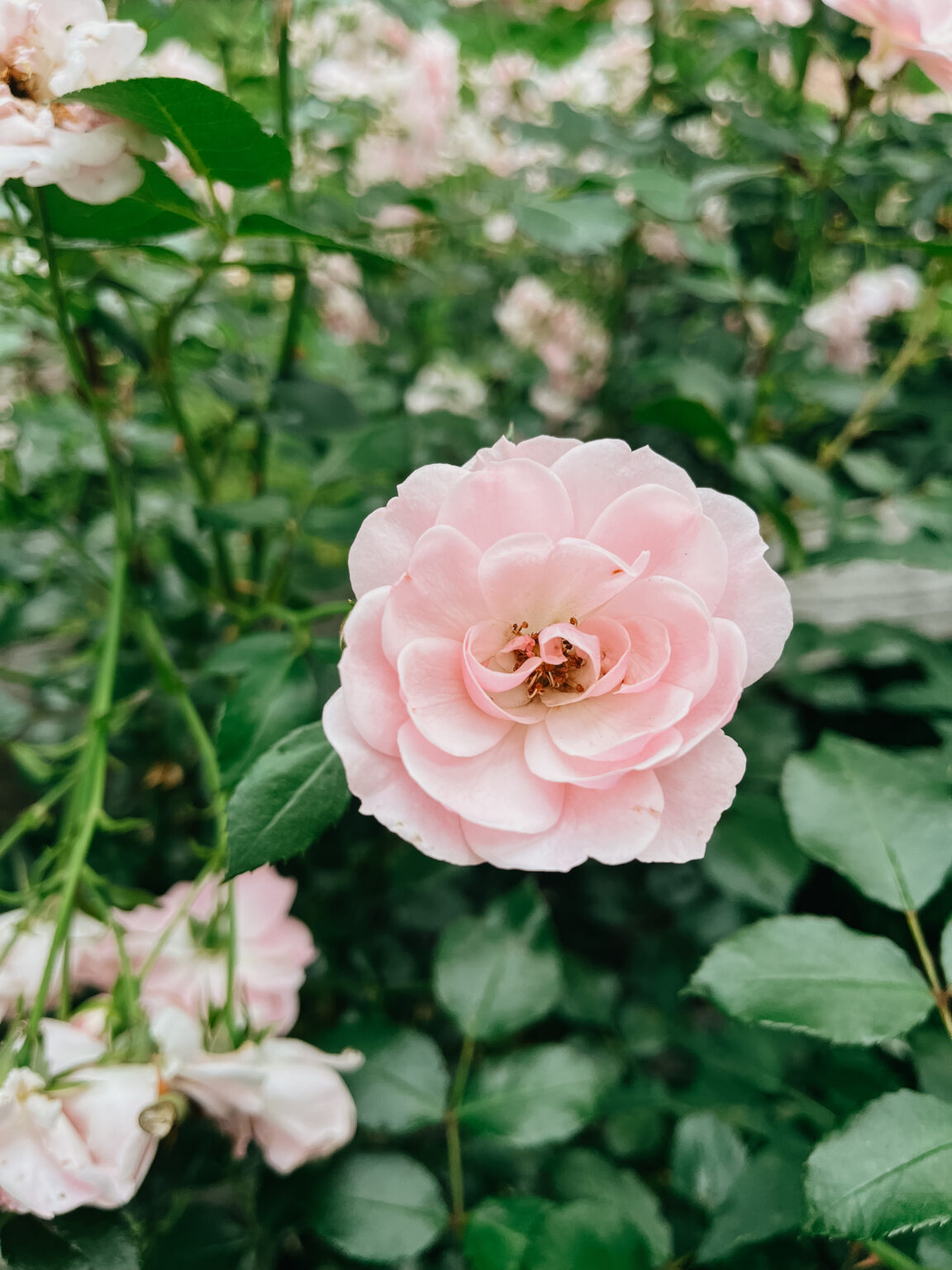
Rose (Rosa spp.) petal
The ultimate herb of self-love, rose reminds us of our own innate resilience and the sensuous glory embodied in this life. The sweet aroma alone can increase feelings of presence, enjoyment, and love. It is no wonder that the old adage, “stop and smell the roses” serves as a gentle reminder to pause and take in the beauty and wonder of the moment. Self-doubt can be linked to perpetually being in the past or the future, burdened by worries and regrets. Therefore, plants and experiences that bring us fully into the present can also help us feel more engaged, alive, and strong and can boost your confidence.
Rose uplifts and “gladdens” the heart and benefits both the emotional and physical heart. Consider rose when you are weighed down by stress, grief, or overwork (Groves, 2016). Rose tincture and tea are a lovely and effective way to enjoy rose petals. Also, a spritz of rosewater can refresh the skin and mood, and with its cooling properties, is a particularly good support during hot weather. You can combine rose water with cheerful peppermint (Mentha x piperita) as in this Cooling Body Spray with Rose and Peppermint Essential Oil and use as needed as a gentle refresher for your skin and nervous system.
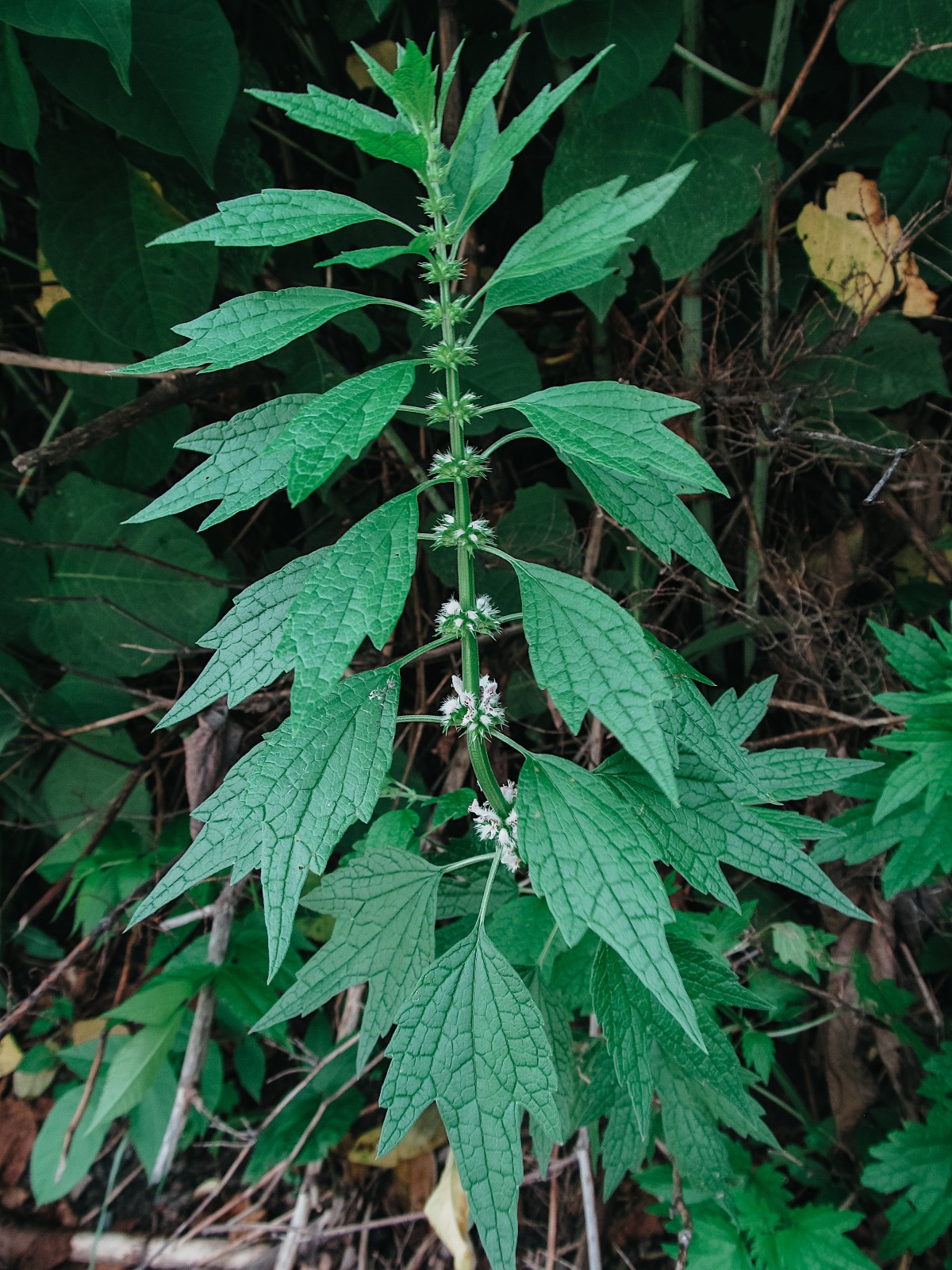
Motherwort (Leonurus cardiaca) aerial parts
Confidence and connectedness are the antidotes to self-doubt, and motherwort encourages both. Infiltrating the heart and mind with reassurance, motherwort restores a sense of unconditional acceptance, while providing the strength needed to persevere. Motherwort’s binomial, which translates to “lion hearted,” offers us insight into the benefits and usages of this bitter yet comforting herb. Reach for motherwort to soothe anxiety, particularly if associated with heart palpitations and panic attacks (Groves, 2016). The herb is a mild vasodilator as well as a calming nervine, thus making it useful for calming the heart and mind (Dass, 2013). Motherwort is also a support to those who are feeling stressed and overworked, and can additionally ease hot flashes, calm an overactive thyroid, and promote healthy menstrual flow (Groves, 2016). Since this herb has a strong bitter taste, you won’t want to sip it as a tea. However, it makes a very effective tincture or glycerite, and the sweet benefits are well worth the bitter taste!
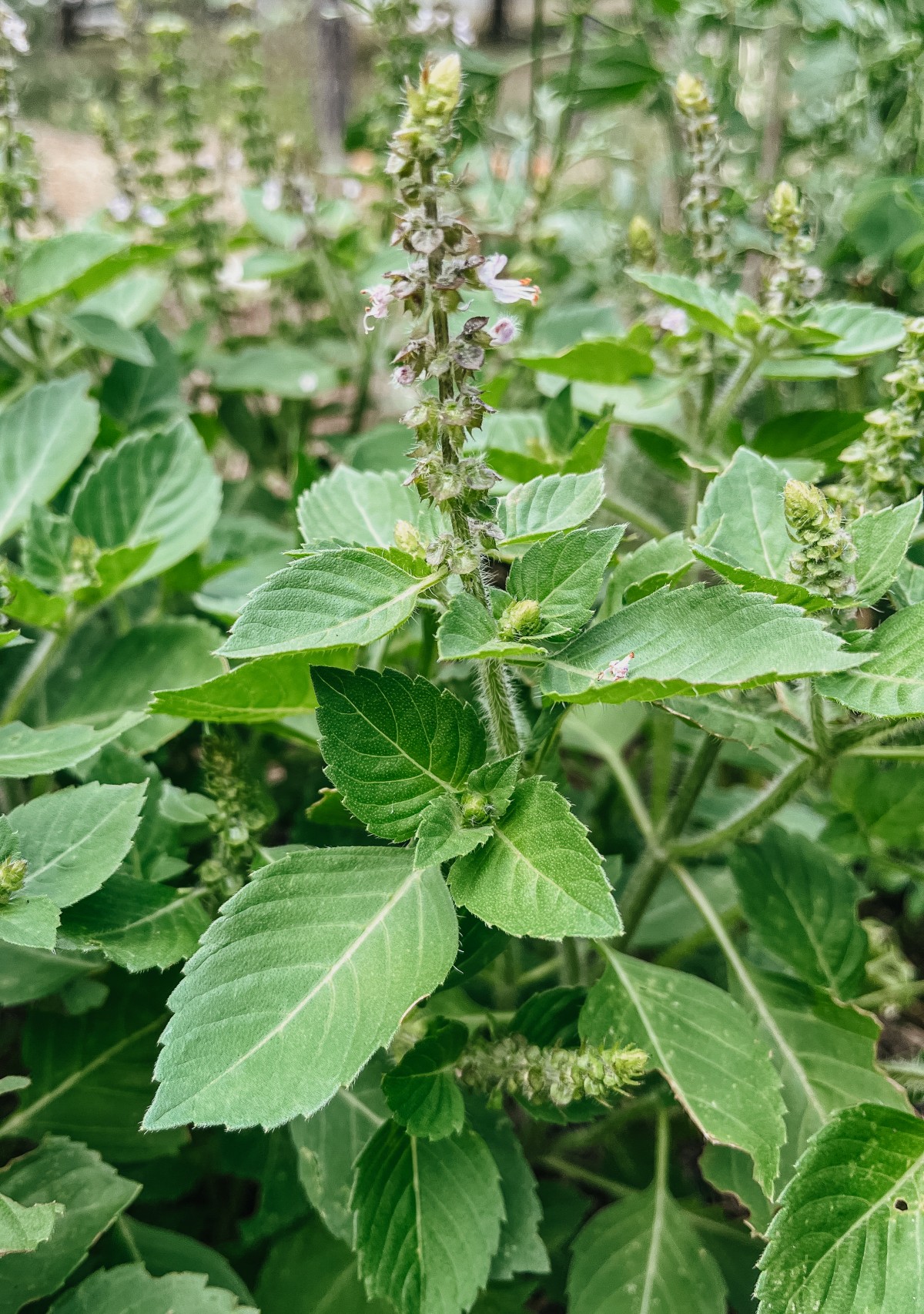
Tulsi (Ocimum tenuiflorum) aerial parts
Tulsi inspires embracing oneself in order to embrace life fully, even in the midst of challenging circumstances. Graceful and generous, tulsi encourages the lens of compassion to be turned towards the self. In Ayurveda, tulsi is considered to be a sattvic herb, meaning that it has purifying and clarifying qualities. So, if you are feeling mentally bogged down or like you are having a hard time seeing the forest through the trees, gentle yet strong tulsi may be your friend, guiding you to a sense of clarity even when you encounter troubled waters. Considered an adaptogen, tulsi helps us ride the waves of life and stay even-keeled. This much-revered herb is particularly helpful for stress, headaches, and for releasing deep-seated emotions, such as grief (Dass, 2013). Its antimicrobial and anti-inflammatory actions also provide immune support.
Enjoy dried tulsi leaves as a stand-alone tea or use in place of black tea (Camellia sinensis) leaves for an herbal masala chai. Tulsi also works well as a tincture or when taken in capsule form.
In Closing,
These cherished herbal allies, along with other practices for soothing anxiety and supporting mood, are like a lantern in the dark, guiding you home to your emotional center and that place of deep knowing. And most importantly—you are enough—just as you are. We call on herbs like we would teachers and guides to help us remember this truth.
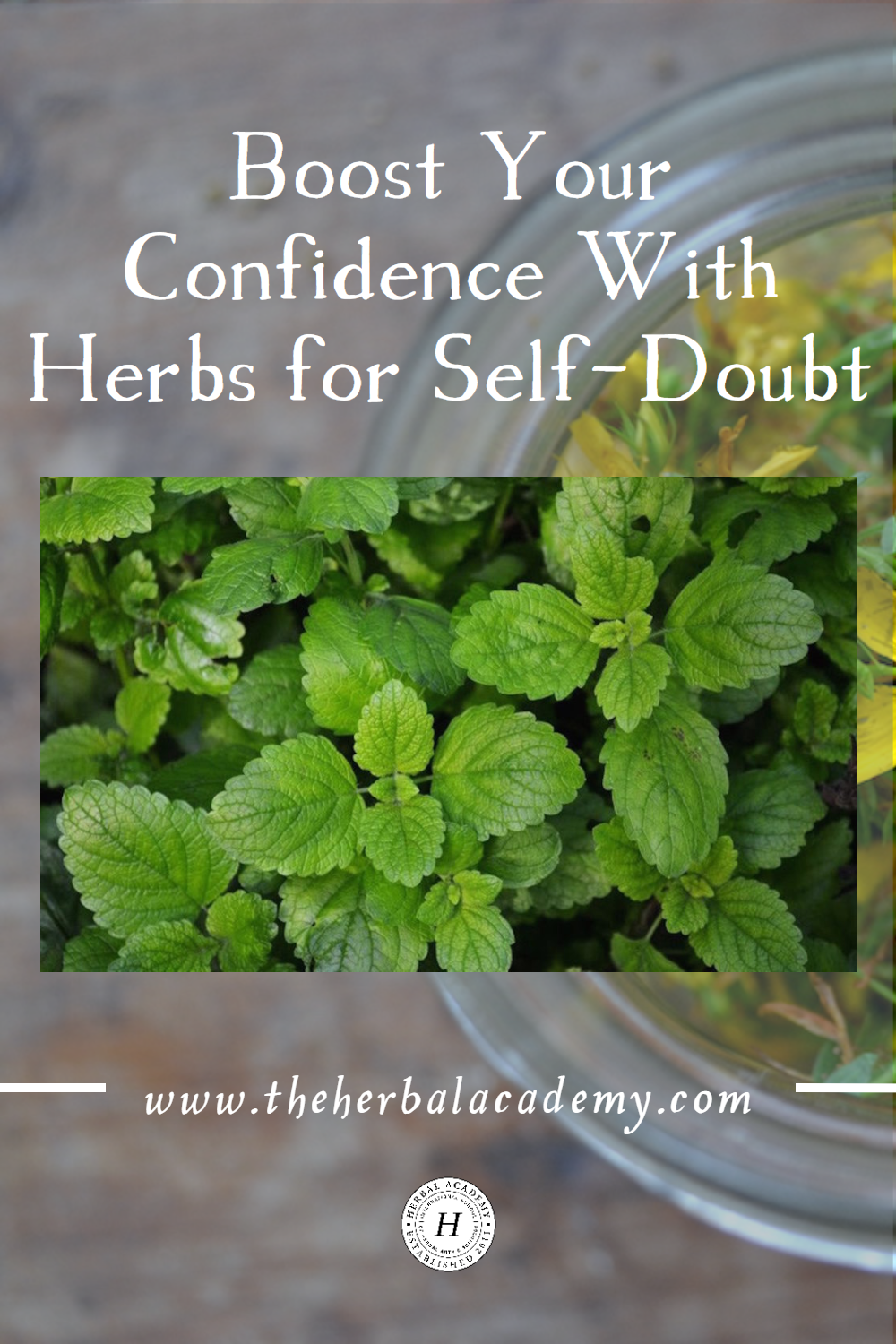
REFERENCES
Dass, V. (2013). Ayurvedic herbology East & West: A practical guide to ayurvedic herbal medicine. Lotus Press.
Groves, M.N. (2016). Body into balance: An herbal guide to holistic self-care. Storey Publishing.







